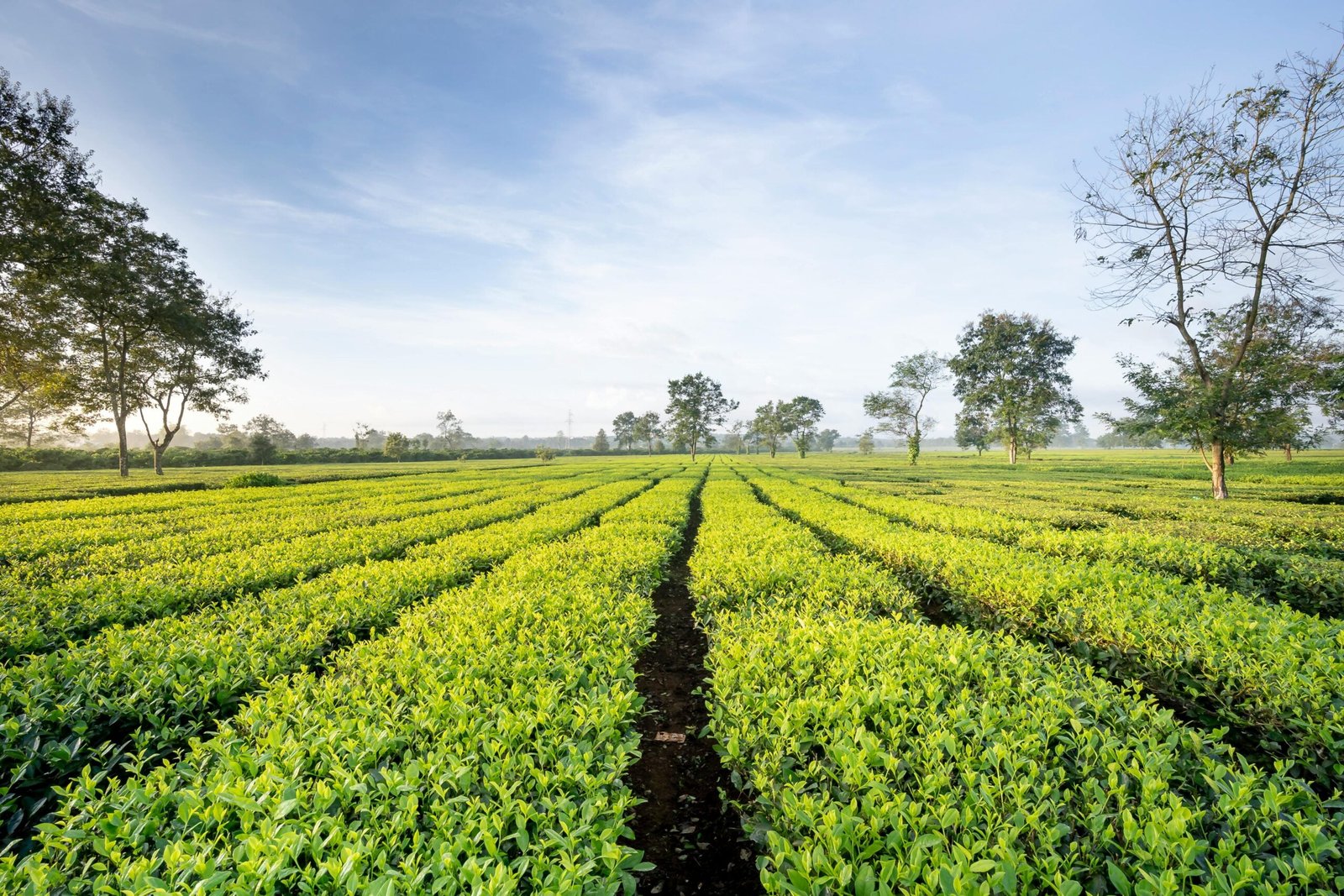
Summary of Contents
Introduction
Organic farming has taken the world by storm, and nowhere is this more evident than in the lush and fertile landscapes of Northeast India. Known for its pristine environment, diverse culture, and rich biodiversity, this region is becoming a significant hub for sustainable farming practices. More and more farmers are moving away from conventional farming methods, which rely heavily on synthetic pesticides and fertilizers, and embracing organic farming for a healthier future.
But why Northeast India? The answer lies in its unique geographic advantages and long-standing tradition of eco-friendly agriculture. This region, comprising states like Assam, Meghalaya, Nagaland, and Manipur, is rich in natural resources, making it ideal for organic farming.
In this article, we’ll explore the rise of organic farming in Northeast India, the benefits it brings to both farmers and consumers, the common organic farming practices, and the challenges and opportunities the region faces. By the end, you’ll understand why organic farming in Northeast India is not only growing but thriving.
The Rise of Organic Farming in Northeast India
Northeast India has always been an agricultural region. However, in recent years, there has been a noticeable shift towards organic farming, thanks to increasing awareness about the health and environmental benefits of organic produce. Organic farming in Northeast India is gaining momentum due to multiple factors, such as consumer demand for chemical-free products, government support, and the region’s natural aptitude for agriculture.
Unlike other parts of India, the Northeast has long used traditional methods that align with organic practices. For example, many farmers here practice jhum cultivation or shifting agriculture, which inherently promotes soil fertility and reduces the need for synthetic inputs.

Government Initiatives and Support
To support the transition from conventional to organic farming, the government has launched various programs and schemes. The Paramparagat Krishi Vikas Yojana (PKVY) is one such initiative aimed at promoting organic farming across India, with Northeast India being one of its primary focus areas. Similarly, the Mission Organic Value Chain Development for North East Region (MOVCD-NER) aims to help farmers produce, market, and sell organic products, providing them with an opportunity to reach national and international markets.
Consumer Demand and Global Trends
More and more people are looking for sustainable options, not just in food but also in lifestyle choices. As awareness about the benefits of organic farming spreads, consumers—both in India and internationally—are seeking out organic produce. This demand is opening up new opportunities for Northeast Indian farmers, many of whom are finding that organic farming is both more profitable and better for their land.
Why is Organic Farming in Northeast India Ideal?
Northeast India’s unique geographical characteristics make it an ideal region for organic farming. The region’s fertile soil, abundant rainfall, and diverse climatic conditions provide a favorable environment for cultivating a wide variety of organic crops. The lush landscapes, mountainous terrains, and abundant water resources offer ample opportunities for sustainable agricultural practices. Moreover, the region’s relatively low population density and less exposure to industrial pollution create a conducive environment for organic farming, minimizing the risk of contamination and preserving the natural integrity of the land.

Rich Biodiversity and Soil Health
One of the biggest advantages that Northeast India offers for organic farming is its rich biodiversity. From Assam’s fertile Brahmaputra valley to the rolling hills of Nagaland, the region is home to a wide variety of flora and fauna. This biodiversity creates a natural balance in the ecosystem, which reduces the need for chemical pesticides and fertilizers.
Furthermore, the soil in many parts of the region is naturally fertile, reducing the dependency on external inputs. Organic farming methods, like crop rotation and composting, work in harmony with the environment to maintain and even improve soil health over time.
Traditional Farming Practices
The people of Northeast India have always been connected to the land, with farming being a way of life for many. Traditional farming methods, such as jhum cultivation, align closely with organic principles. While jhum farming may not be as widespread today, many of its techniques—such as using natural fertilizers and rotating crops—are still practiced and form the backbone of modern organic farming methods.
Favorable Climate and Water Resources
Unlike regions that struggle with water shortages, Northeast India receives abundant rainfall, making it easier to cultivate a variety of crops. This natural resource is crucial for organic farming, which often relies on rain-fed agriculture. Additionally, the region’s climate varies from tropical in Assam and Meghalaya to subtropical in Arunachal Pradesh and Mizoram, allowing for a wide range of crops to be grown organically.
Common Organic Farming Practices in Northeast India
Northeast India, with its diverse topography, rich biodiversity, and abundant rainfall, has long been a fertile ground for agriculture. In recent years, the region has witnessed a significant shift towards organic farming, combining traditional farming practices with modern techniques to promote sustainable and environmentally friendly agriculture.

Crop Rotation and Mixed Cropping
One of the most common practices in organic farming is crop rotation. Farmers in Assam, for example, grow different crops in the same field across different seasons. This prevents soil depletion and reduces the chances of pests becoming a problem. Mixed cropping, where multiple crops are grown together, also helps in maintaining soil fertility and reducing pest infestation without chemical pesticides.
Biological Pest Control
Rather than relying on synthetic pesticides, organic farmers use biological methods to control pests. For instance, natural predators like ladybugs and spiders are encouraged in farms to keep harmful pests in check. Neem oil, derived from the neem tree, is another popular organic pesticide used widely across Northeast India.
Use of Organic Fertilizers
Farmers in the region use compost, vermicompost, and green manure as natural fertilizers. These organic materials not only provide essential nutrients to the soil but also improve its structure and water retention capacity. Assam is particularly known for its organic tea, grown using natural compost and bio-fertilizers to enhance the quality of tea leaves.
Government Support for Organic Certification
To help farmers gain access to larger markets, both domestically and internationally, the government provides assistance with organic certification. This certification assures buyers that the produce is genuinely organic, boosting farmers’ income.
Crops Grown Through Organic Farming in Northeast India
Northeast India’s unique geographical conditions, including its hilly terrain, abundant rainfall, and fertile soils, make it an ideal region for organic agriculture. The region boasts a diverse range of organic crops, many of which are highly sought after in both domestic and international markets.

Rice
Rice is the staple crop of Northeast India, especially in Assam. Organic rice farming has gained popularity in recent years, with farmers adopting natural methods to improve both yield and quality. Assam’s organic black rice, known for its nutritional benefits, has become a prized export.
Tea
Assam is synonymous with tea, and the organic tea movement is rapidly gaining traction. Organic tea plantations in Assam focus on eco-friendly farming techniques that avoid synthetic chemicals, resulting in a product that is healthier and better for the environment.
Spices
Northeast India is also known for its organic spices. Ginger, turmeric, and black pepper are widely cultivated across Meghalaya and Nagaland. These organic spices are sought after for their purity and medicinal properties, making them popular both in India and abroad.
Fruits and Vegetables
A variety of fruits and vegetables are also grown through organic farming in Northeast India. These include:
- Citrus fruits: Oranges, lemons, and grapefruits are cultivated in Arunachal Pradesh and Nagaland.
- Pineapples: These tropical fruits are grown in Meghalaya and Assam.
- Potatoes: Potatoes are a staple crop in many parts of Northeast India, and organic varieties are becoming increasingly popular.
- Bamboo shoots: Bamboo shoots are a traditional food in Northeast India and are also grown organically.
- Mushrooms: Various types of mushrooms, including shiitake and oyster mushrooms, are cultivated organically in the region.
Medicinal Plants
Northeast India is home to a rich diversity of medicinal plants, many of which are grown organically. These include:
- Tulsi (basil): A sacred plant in Hinduism, tulsi is known for its medicinal properties and is widely cultivated organically.
- Ginger: Ginger is a versatile root that is used in both culinary and medicinal applications.
- Turmeric: This golden spice is known for its anti-inflammatory properties and is a popular ingredient in Ayurvedic medicine.
- Aloe vera: Aloe vera is a succulent plant with medicinal properties, commonly used for skin care and digestive health.
Challenges and Opportunities in Organic Farming
While the future of organic farming in Northeast India looks promising, there are several challenges that need to be addressed to ensure sustainable growth. Limited market access, inadequate infrastructure, and high certification costs are significant hurdles for small-scale farmers. Additionally, the region’s vulnerability to natural disasters, pesticide contamination, and soil degradation poses serious threats to sustainable organic agriculture.

Challenges
- Lack of Infrastructure: One of the major challenges is the lack of proper infrastructure, including storage facilities and transportation, making it difficult for farmers to get their organic produce to larger markets.
- Awareness and Education: Although there is growing interest in organic farming, many farmers are still unaware of the full benefits and techniques. Training programs are essential to educate farmers on how to transition from conventional to organic methods.
- Certification Process: The process of obtaining organic certification can be lengthy and costly for small-scale farmers. Government subsidies and support are crucial to making this more accessible.
Opportunities
Despite these challenges, the opportunities are immense. There is a growing demand for organic products both in India and internationally. Export markets for organic rice, tea, and spices from the Northeast are booming, giving farmers the chance to earn higher incomes while practicing sustainable agriculture.
Conclusion
Northeast India’s natural environment, traditional farming methods, and increasing consumer demand for organic products make it an ideal region for the growth of organic farming. From Assam’s tea plantations to Meghalaya’s spice farms, organic agriculture is transforming the local economy and improving the health of both the land and its people.
Are you curious about organic farming in Northeast India? Want to know the difference between organic and natural farming? Explore more resources on sustainable farming or try out locally produced organic goods from Northeast India today! Together, we can make a healthier, greener future.
FAQ Section
Which type of farming is famous in North East India?
Northeast India is famous for its shifting cultivation, also known as jhum farming. However, with the rise of organic farming in Northeast India, the region is now a hotspot for sustainable agriculture that preserves the environment and boosts the quality of produce.
Is the Northeast good for organic farming?
Yes, organic farming in Northeast India is excellent due to its fertile soil, diverse climate, and abundant rainfall. These natural advantages make it ideal for organic farming, which thrives in the region’s eco-friendly agricultural environment.
Which states are organic in North East India?
All eight states in Northeast India are actively promoting organic farming. While Sikkim is the first and only fully organic state, the others are making significant strides towards adopting sustainable agricultural practices.
What is the main crop of North East India?
Rice is the main crop of Northeast India, especially in states like Assam and Manipur. Other important crops include tea, ginger, turmeric, and various vegetables, many of which are now grown using organic methods.
What is organic farming in Assam?
Organic farming in Assam involves the cultivation of crops without synthetic fertilizers or pesticides. The state is known for producing organic tea, rice, and a variety of spices like turmeric and ginger, using eco-friendly and sustainable farming methods.
